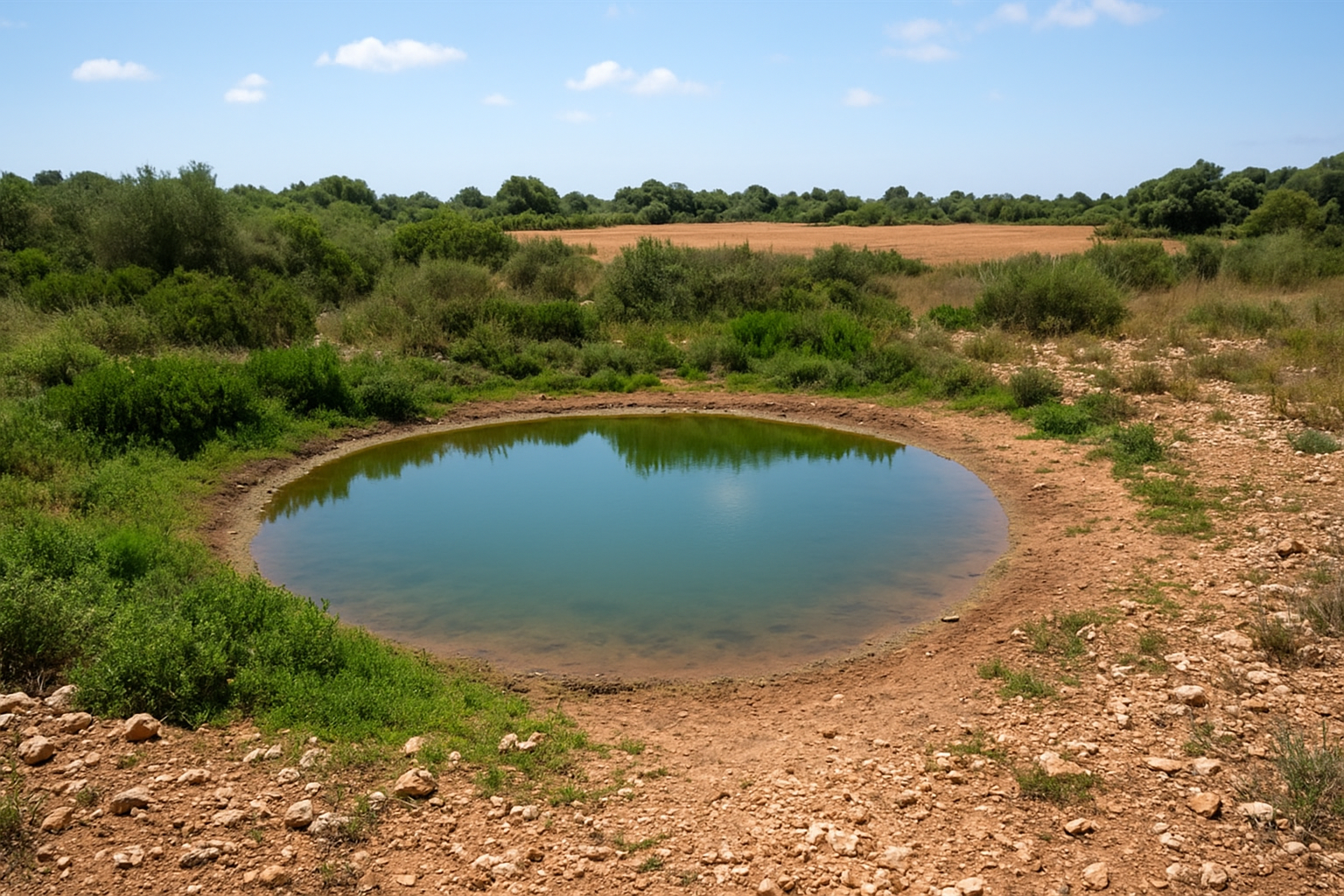The “basses” of the Llucmajor countryside are small seasonal ponds, either naturally formed or man-made and waterproofed over time. Traditionally, they have served as water points for livestock and wild game. Some of them may date back to ancient times, even before the Roman era.
These wetlands are located in a dry, limestone-rich landscape dominated by traditional dry farming and Mediterranean shrubland. Despite their small size, they are of great ecological value, as they represent the only available water sources across a wide area. They are home to a unique variety of freshwater invertebrates adapted to the seasonal nature of steppe-like habitats.
However, their small dimensions also make them particularly vulnerable to environmental changes, especially to contamination caused by large populations of gulls in the area. As all of them are located on private land, preserving their natural richness requires cooperation and sustainable management.


